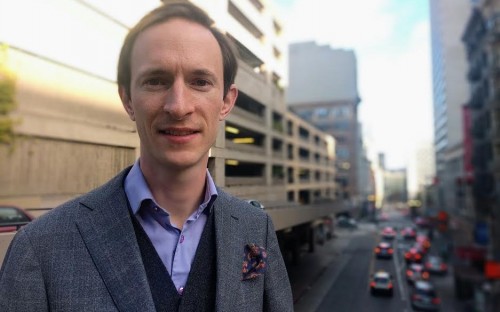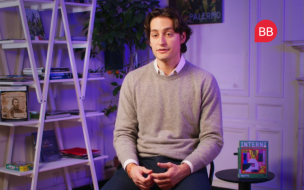Back in 2010, Thibault – a trained mechanical engineer – decided to move on from an internship at Airbus, step out of the technical, study business, and gain a global perspective at ESCP Europe.
35-to-40 different nationalities are typically represented in ESCP Europe classes. MBA in International Management students study in two different countries choosing from one of the school’s six European campuses – in Berlin, London, Madrid, Paris, Turin and Warsaw – or an international partner in Delhi, India.
Thibault studied in Paris and London. He worked on two real-life consulting projects for real firms – Kodak and distilled drinks manufacturer Pernod Ricard – included within the course curriculum. After graduation, he made the career switch into technology landing a job at Revevol, a cloud services company founded by a group of former consultants from the Boston Consulting Group and KPMG.
He was not alone. ESCP Europe grads receive around 30,000 jobs through the school’s alumni association and 20,000 internship offers through the school’s career services each year.
Now, Thibault works in San Francisco’s Silicon Valley – the world’s foremost tech startup hub – as vice president of customer service for AODocs, a web application which helps companies manage their Google Drive files in a more professional way. His clients include Whirlpool and the New York Times.
Would he be where he is today without ESCP Europe? Probably not.
Why did you decide to study at ESCP Europe?
I mainly had experiences in large French engineering companies. I wanted to work abroad for an international company, and change field into a more fast-paced industry. I was finishing my mechanical engineering studies elsewhere and I felt the need to get some management skills to be able to get jobs with more responsibilities faster.
I was looking at other schools, but what made the difference was the opportunity to study in two different countries at ESCP Europe, and to get a professional experience with the company projects included in the curriculum.
What stands out from your experience at ESCP Europe?
I always mention my first company project for Kodak in London. At the time, smartphones were just coming out and there were literally no tablets – the market was just emerging. Kodak were looking at the situation, and asking us where they should go and what they should do.
We learned that Kodak had a lot of patents on different technologies which could be leveraged. We did a market study and advised them to definitely go in this new direction. One company we advised that they a look to acquire was later acquired by Samsung.
It was my first 100%-English-based-project, with all the Anglo-Saxon mindsets of working. And we worked in a team with such diverse backgrounds and nationalities that it created something really special. I’m still in close contact with my teammates.
How have you profited?
I decided to look for a job right after graduation, instead of doing the internship. I looked for job offers on ESCP Europe’s intranet. I went through four interview rounds with Revevol and got the job.
Without ESCP Europe, I wouldn’t have been able to change field so easily. I would probably have kept working at Airbus in France, in the mechanical engineer field – still pretty awesome but much slower than what is happening in the cloud right now.
Working on so many different projects with teams of international people gave me a lot of confidence. I met them most of my best friends at ESCP Europe and we see each other as often as we can everywhere around the globe.
What advice do you have for MBAs looking to work in Silicon Valley?
Don’t be afraid of going for a job that you have no experience in yet. As long as you prove that you love to work, that the field you want to work in is special to you, and that you are able to change and adapt, you can get the job. The mindset in Silicon Valley is open to that.
To get a VISA, you usually have to find a company that’s willing to send you there. A company will hire you in France or the UK for a year, then send you to the US on a specific VISA. It’s a pain, but once you’ve done it it’s great.
In Silicon Valley, we’re always the first to get the latest technologies that we can test. Even if they’re not directly relevant to our core product, they give us new ideas.
RECAPTHA :
0d
5d
d6
ae








